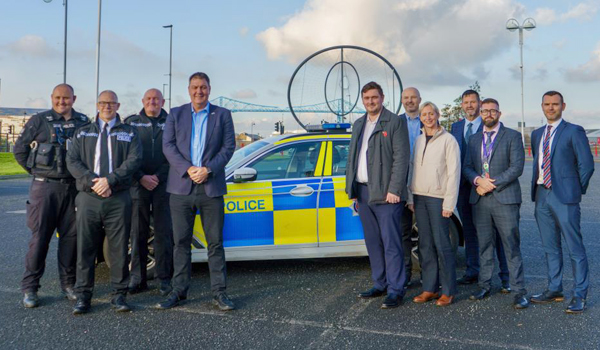Drug-driving education course to be piloted in Teesside
People in Teesside convicted of drug-driving will be among the first in the country to be offered an educational course to help divert them away from drugs and reduce offending.
Current UK legislation offers educational courses for drink-driving and for driving without due care attention – but there is no such course for those found to be driving under the influence of drugs.
The Department for Transport (Dft) has selected the South Tees area – encompassing the Middlesbrough and Redcar and Cleveland local authority areas – as a testing site for an educational drug-driving course.
The pilot scheme is funded by DfT and through both Project ADDER – a Home Office and Office for Health Improvement and Disparities (OHID) initiative to tackle drug-related harm in Middlesbrough, through proactive enforcement and enhanced treatment options – and Public Health South Tees.
The first course is expected to take place in early 2024 and will signpost offenders to local services that offer support to aid recovery from drug-taking habits.
Participation in the scheme is not mandatory. However, an agreement has been reached with major insurance companies that should course attendees go on to regain their driving licence, they may be offered a reduction in their renewal premium.
It is hoped the courses will reduce drug-driving offences and lessen the burden of drug offences on budgets of local services, including health and police.
Once the pilot has been completed it will be academically reviewed and evaluated. This evidence will feed into a DfT consultation, which could lead to a legislative change to roll-out drug-driving education courses nationwide.
Police and crime commissioner Steve Turner is Chair of Cleveland Combatting Drugs Partnership. He said: “I’m pleased that Cleveland has been selected to test a new offer for those caught driving whilst under the influence of drugs.
“This isn’t about drug-drivers ‘getting away with it’ – they will be convicted at court and then offered a course, which will signpost them towards services that can address their habits.
“Every person that starts their engine with illicit substances in their system risks their life – and the lives of every road user they encounter. This gives us a chance to stop that.”
Between November 11, 2022, and October 31, 2023, there have been 1,279 arrests made in Cleveland relating to driving under the influence of alcohol or drugs. Of those, 708 were drug-related, 570 were alcohol-related and one was uncategorised.
Detective Chief Inspector Gez Wraith, who is the lead for Project ADDER for Cleveland Police, said: “Those who drive whilst under the influence of drugs put themselves and other road users at serious risk and we are committed to making our roads safer.
“Whilst enforcement is key to ensuring those who break the law are held accountable, it’s also important that we understand and tackle the root cause of their offending, signposting people to specialist services that can help address their drug-related offending.
“This drug-driving course is the first of its kind which could lead to a significant change in the law and I’m proud that this crucial work is being carried out here in Cleveland.”
Chief Superintendent Paul Waugh explained: “At Cleveland Police, we adopt a prevention-based approach to reducing crime so we’re extremely pleased to support the launch of this new course which will help divert people away from drugs and, in turn, away from offending. This is a fantastic example of partnership working and shows just what we can achieve when we all work towards one common goal.”
Middlesbrough Mayor Chris Cooke is supporting the pilot.
He said: “Nobody can downplay the seriousness of a drug driving offence. People who get behind the wheel while under the influence are risking their own life and those of other people.
“But we must acknowledge that this is a societal problem and try to make a positive difference. These courses have the potential to make a meaningful difference to those who are convicted. They can also reduce pressure on hard-pressed services in the longer term. It’s right that we take part in this pilot and learn from the results. I’m glad to see the Police and Crime Commissioner supporting this programme.”
Jonathan Bowden, Head of Health Inclusion for Public Health South Tees was one of the local team that developed and led the drug driving initiative. He said: “The statistics tell us that this is an increasing issue in our area and we need to reduce the potential for harm. Taking a public health approach enables both a greater understanding of drug driving and can get to the root causes that led people to commit the offence. It will reduce reoffending by educating people and giving them the tools to reduce their use of substances.”
“We are grateful to DfT colleagues and our partners for helping us to get this scheme up and running. It is credit to South Tees that we are leading the way with this pilot. We are hopeful that it will generate positive outcomes and, potentially, contribute to updated legislation, which will enable the programme to be rolled out across the country.”
Tim Ribton, Trainer Services Manager for TTC Group, who created the pilot drug-driving course said: “When it comes to improving road safety and changing attitudes and behaviours, rehabilitation definitely works.
“It is a privilege to work with the support of Project ADDER funding to create the UK’s first drug-driving course, and look forward to commencing course delivery across the South Tees area in early 2024.”


